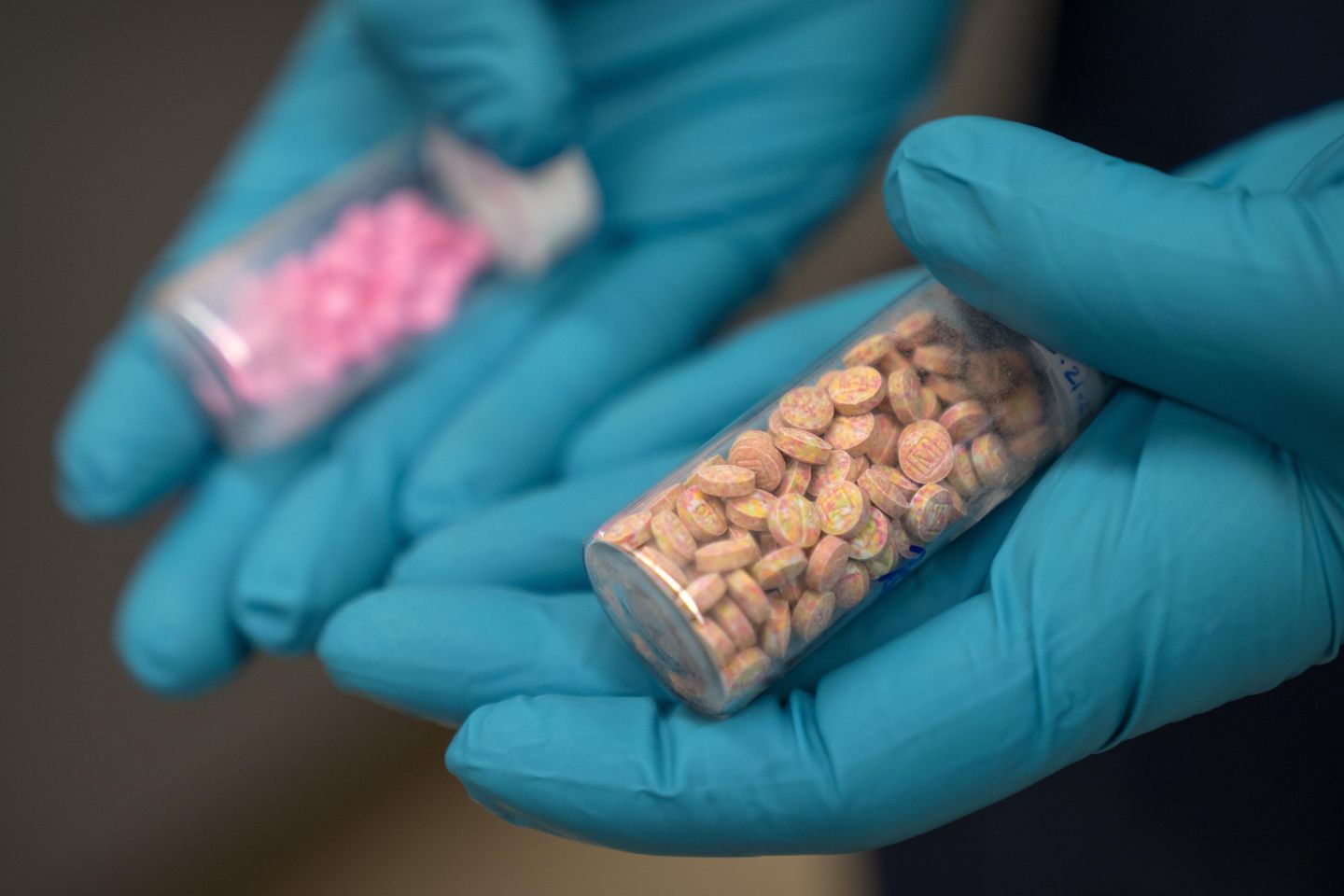
The trade truce between the U.S. and China took effect on Wednesday, but tensions remain over fentanyl, with Beijing insisting the drug crisis remains “the U.S.’s problem, not China’s.”
Negotiators from the world’s two largest economies agreed to slash tariffs from levels exceeding 100% to 10%, effective May 14, during recent talks in Switzerland.
Yet the U.S. is imposing an additional 20% tariff on Chinese goods because too many fentanyl-precursor chemicals are flowing from Chinese factories to places like Mexico, resulting in a U.S.-imposed tariff rate of 30%.
China’s foreign ministry signaled Wednesday it is smarting over the fentanyl-related levy even as both sides prepare to meet again to discuss a broader trade deal.
“Despite the goodwill China has shown, the U.S. wrongly slapped tariffs on Chinese imports by citing the issue of fentanyl. The move has dealt a heavy blow to China-U.S. dialogue and cooperation on counternarcotics, and gravely hurt China’s interests,” said Lin Jian, China’s foreign ministry spokesman.
Fentanyl, a synthetic opioid, is considered the key driver of an overdose crisis that kills tens of thousands of Americans each year.
U.S. officials say China should do more to crack down on Chinese chemicals that Mexican cartels use to craft finished fentanyl, often in the form of counterfeit pills. The drugs are trafficked to the U.S.
Chinese officials on Wednesday were reacting to comments from former U.S. Ambassador Nicholas Burns, who said Beijing could do more to stop the flow of precursor chemicals.
The Biden-era official, speaking to Bloomberg News, said the fentanyl-related tariff “is a good reminder to the Chinese there is going to be a price to pay if they don’t cooperate with the U.S. on this major health crisis that we’re facing.”
Mr. Lin repeated China’s belief that drug addiction in the U.S. is fueling the fentanyl crisis.
“China has made it clear more than once that fentanyl is the U.S.’s problem, not China’s. It’s the U.S.’s responsibility to solve the issue,” Mr. Lin said. “If the U.S. truly wants to cooperate with China, it should stop vilifying and shifting the blame on China, and seek dialogue with China based on equality, respect and mutual benefit.”
The friction signaled that fentanyl could remain a key talking point or bargaining chip when Treasury Secretary Scott Bessent and U.S. Trade Representative Jamieson Greer meet again with Chinese officials to discuss a broad trade agreement.
Mr. Trump says he wants to open up China’s market to U.S. businesses. U.S. officials also want to target non-tariff trade barriers such as Beijing’s subsidization of key industries and alleged theft of intellectual property.
The U.S. has been able to prod China into action on fentanyl in the past.
Mr. Trump, during his first term, got China to schedule fentanyl as a prohibited drug. Precursor chemicals continued to flow to other countries, however, effectively redirecting the problem.
Earlier this week, Mr. Bessent said Chinese negotiators in Switzerland seemed to be serious about stopping the flow of precursor chemicals.
Mr. Trump hinted that the extra 20% tariff could come off if Beijing makes progress.
“We’re charging them a 20% tariff for the fact that they send fentanyl into our country, and they’ve agreed that they’re going to stop that,” Mr. Trump said at the White House on Monday.
In the U.S., Congress is trying to demonstrate it is serious about drug enforcement by pushing legislation to permanently place fentanyl-like substances on the Schedule I list of drugs, which garner the most severe criminal penalties because they are considered to have the highest risk of abuse and no medical use.
Lawmakers say the permanent scheduling will make it easier for prosecutors to bring criminal cases against traffickers of illicit fentanyl, while establishing clear guidelines for research into fentanyl for legitimate purposes, such as painkilling in medical settings.
The House passed a scheduling bill earlier this year, but the Senate passed its own version of the legislation, so the two chambers must reconcile their legislation before it can reach Mr. Trump’s desk.












